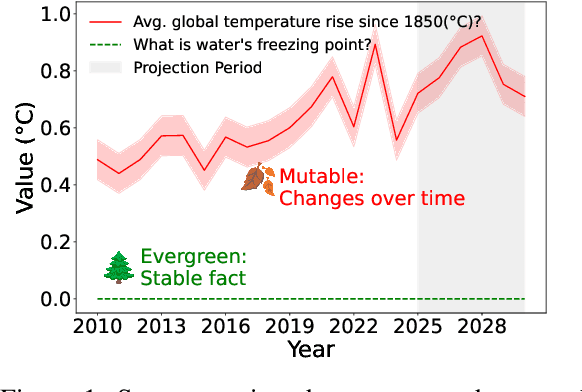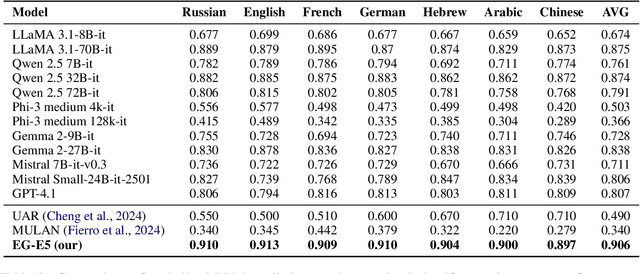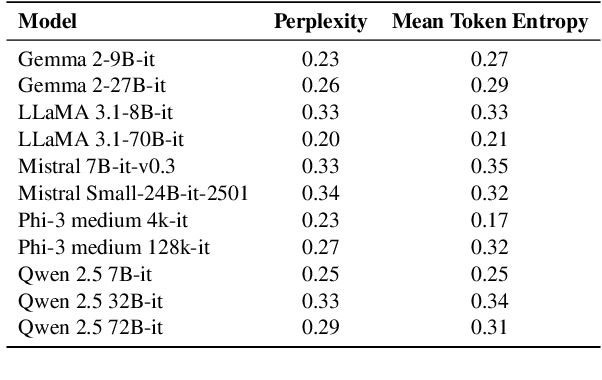Daria Galimzianova
Will It Still Be True Tomorrow? Multilingual Evergreen Question Classification to Improve Trustworthy QA
May 27, 2025



Abstract:Large Language Models (LLMs) often hallucinate in question answering (QA) tasks. A key yet underexplored factor contributing to this is the temporality of questions -- whether they are evergreen (answers remain stable over time) or mutable (answers change). In this work, we introduce EverGreenQA, the first multilingual QA dataset with evergreen labels, supporting both evaluation and training. Using EverGreenQA, we benchmark 12 modern LLMs to assess whether they encode question temporality explicitly (via verbalized judgments) or implicitly (via uncertainty signals). We also train EG-E5, a lightweight multilingual classifier that achieves SoTA performance on this task. Finally, we demonstrate the practical utility of evergreen classification across three applications: improving self-knowledge estimation, filtering QA datasets, and explaining GPT-4o retrieval behavior.
LLM-Independent Adaptive RAG: Let the Question Speak for Itself
May 07, 2025



Abstract:Large Language Models~(LLMs) are prone to hallucinations, and Retrieval-Augmented Generation (RAG) helps mitigate this, but at a high computational cost while risking misinformation. Adaptive retrieval aims to retrieve only when necessary, but existing approaches rely on LLM-based uncertainty estimation, which remain inefficient and impractical. In this study, we introduce lightweight LLM-independent adaptive retrieval methods based on external information. We investigated 27 features, organized into 7 groups, and their hybrid combinations. We evaluated these methods on 6 QA datasets, assessing the QA performance and efficiency. The results show that our approach matches the performance of complex LLM-based methods while achieving significant efficiency gains, demonstrating the potential of external information for adaptive retrieval.
CleanComedy: Creating Friendly Humor through Generative Techniques
Dec 12, 2024Abstract:Humor generation is a challenging task in natural language processing due to limited resources and the quality of existing datasets. Available humor language resources often suffer from toxicity and duplication, limiting their effectiveness for training robust models. This paper proposes CleanComedy, a specialized, partially annotated toxicity-filtered corpus of English and Russian jokes collected from various sources. We study the effectiveness of our data filtering approach through a survey on humor and toxicity levels in various joke groups. In addition, we study advances in computer humor generation by comparing jokes written by humans with various groups of generative jokes, including our baseline models trained on the CleanComedy datasets.
 Add to Chrome
Add to Chrome Add to Firefox
Add to Firefox Add to Edge
Add to Edge